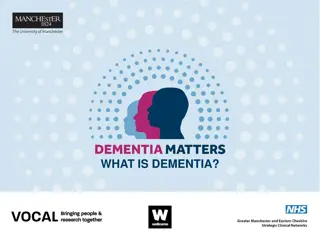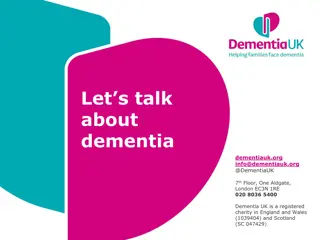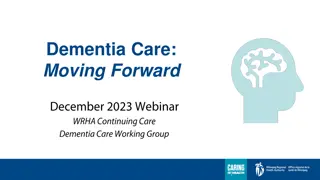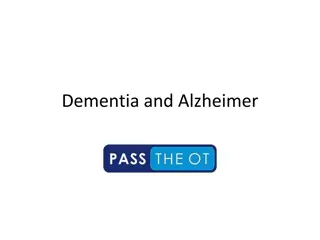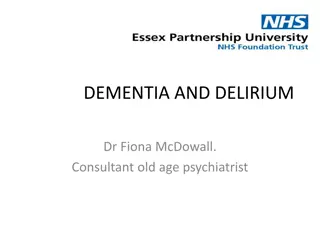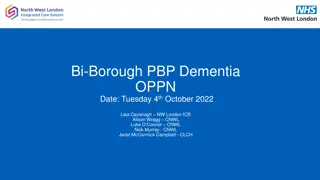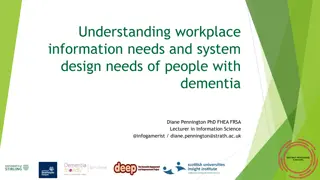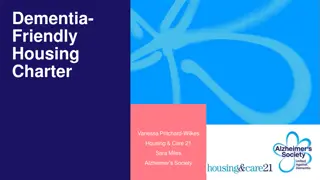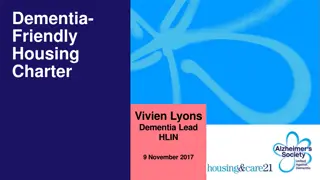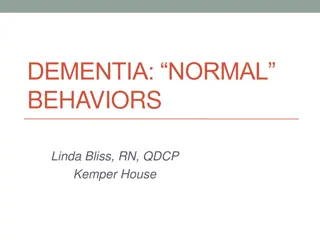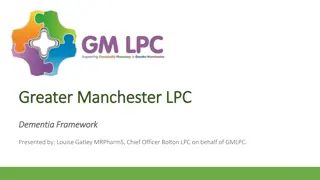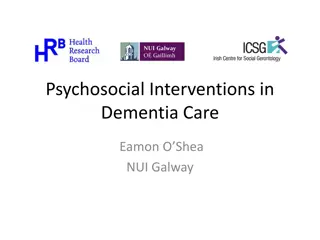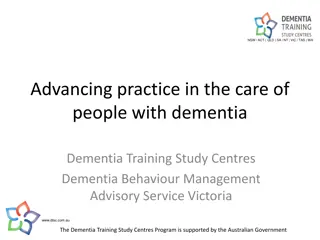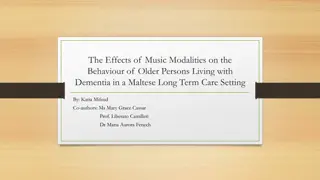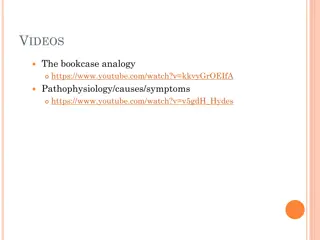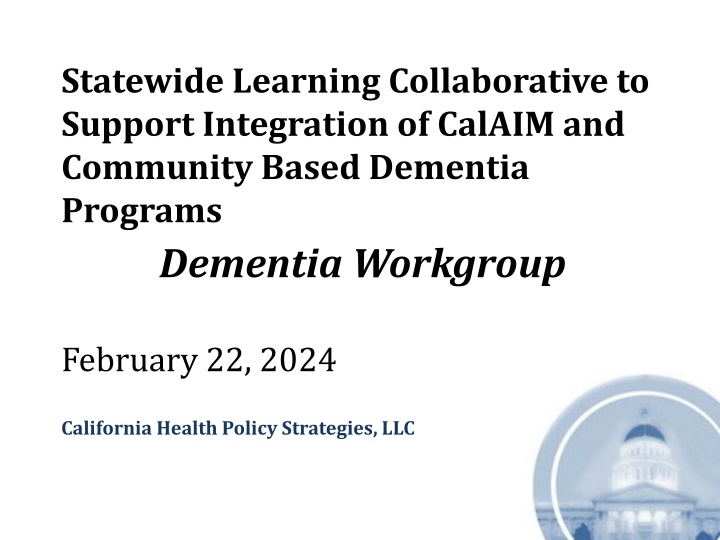
Integrating CalAIM and IHSS for Dementia Support in California
Learn about the Statewide Learning Collaborative supporting the integration of CalAIM and Community-Based Dementia Programs through IHSS. Discover eligibility criteria, IHSS background, assessment processes, recipient data, and more to enhance dementia care strategies in California.
Uploaded on | 1 Views
Download Presentation

Please find below an Image/Link to download the presentation.
The content on the website is provided AS IS for your information and personal use only. It may not be sold, licensed, or shared on other websites without obtaining consent from the author. If you encounter any issues during the download, it is possible that the publisher has removed the file from their server.
You are allowed to download the files provided on this website for personal or commercial use, subject to the condition that they are used lawfully. All files are the property of their respective owners.
The content on the website is provided AS IS for your information and personal use only. It may not be sold, licensed, or shared on other websites without obtaining consent from the author.
E N D
Presentation Transcript
Statewide Learning Collaborative to Support Integration of CalAIM and Community Based Dementia Programs Dementia Workgroup February 22, 2024 California Health Policy Strategies, LLC
Agenda In-Home Support Services (IHSS) Overview Discussion Next Steps California Health Policy Strategies, LLC 1
Context Older adults, especially those with dementia, may be eligible for In-Home Support Services (IHSS) Understanding the population eligible for IHSS is the first part of the discussion to build a strategy for identifying eligible individuals and creating pathways to enroll them in CalAIM programs and services. California Health Policy Strategies, LLC 2
IHSS Background IHSS provides in-home assistance to eligible aged, blind, and disabled individuals as an alternative to out-of-home care to enable recipients to remain safely in their own homes Recipients must be: Medi-Cal eligible Living at home or abode of applicant s/recipient s choosing (acute care hospital, long-term care facilities, and licensed community care facilities are not considered "own home"). California Health Policy Strategies, LLC 3
IHSS Assessment and Service Authorization Recipient must submit an application and Health Care Certification form (SOC 873) Social worker conducts an at home assessment to determine eligibility, types of services needed, and authorized hours The recipient must obtain a current SOC 821 completed by the recipient s doctor when requesting protective supervision services California Health Policy Strategies, LLC 4
IHSS Recipient Data 750,537 IHSS recipients, as of December 2023 55.6% are aged 65 and older Estimated 28.2% of IHSS recipients aged 65 and older have dementia, as of March 2021 10.4% of recipients are receiving protective supervision services 35.8% of recipients are severely impaired (195 or more hours in the IHSS Program) California Health Policy Strategies, LLC 5
Medi-Cal Eligible Living with a complex social or environmental factor influencing health Living in the community but meets institutional care criteria IHSS and ECM Able to reside in the community with additional supports California Health Policy Strategies, LLC 6
Discussion Are you currently serving IHSS recipients? How do you identify IHSS recipients among the population you serve? What information would be helpful in connecting with IHSS recipients and the IHSS agency in your county? California Health Policy Strategies, LLC 7
Next Steps/Meetings Statewide Collaborative Meeting Wednesday, March 13, 12-1pm Dementia workgroup will be absorbed into the Statewide Collaborative Participant survey forthcoming California Health Policy Strategies, LLC 8

